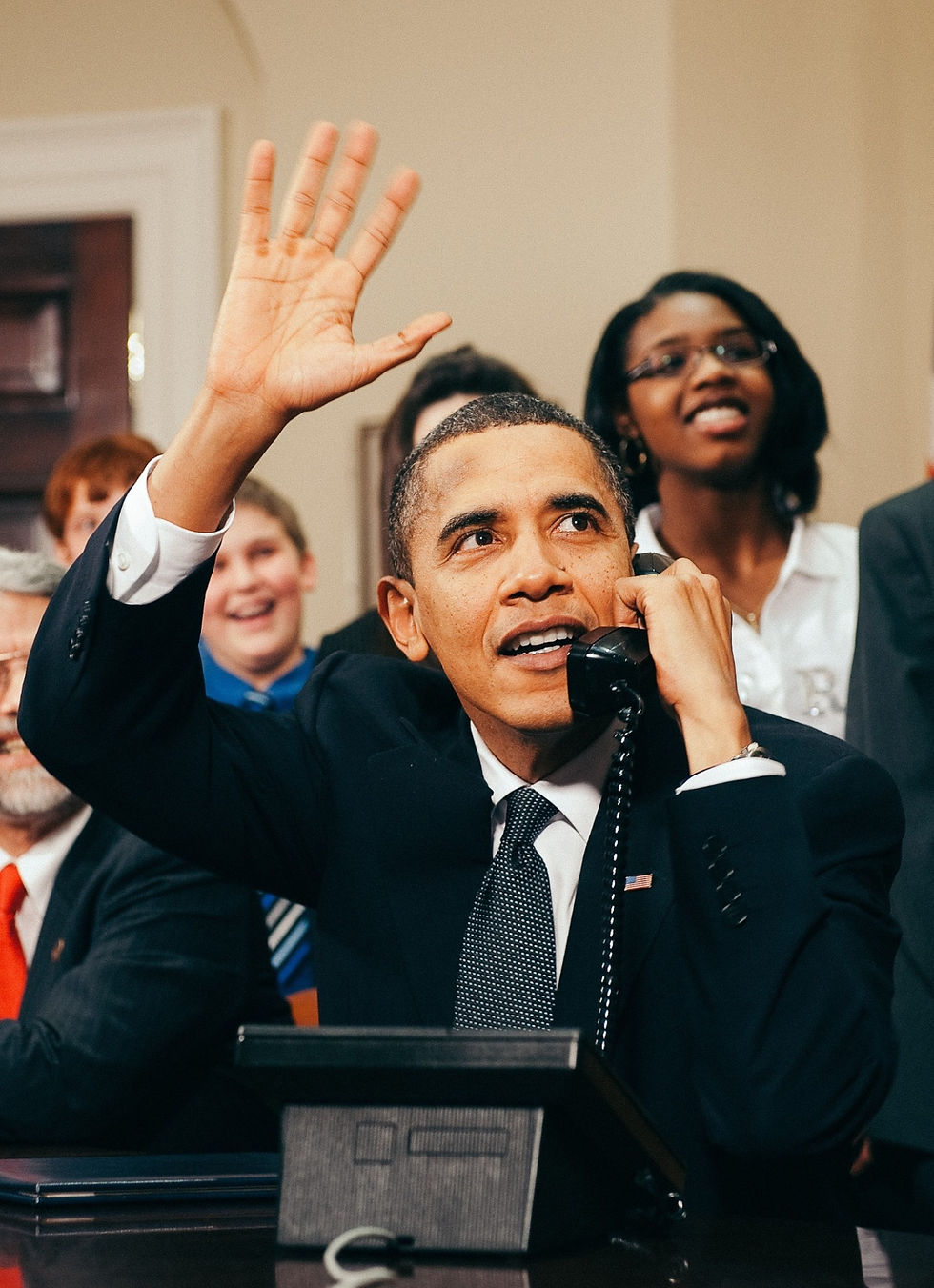DIGITAL INFLUENCE - The rise of digital diplomacy
- Digital Influence Lab
- May 6, 2022
- 4 min read

The use of digital tools such as social network apps, in the international and geopolitical arena, has created a new form of relationship and communications between states and transnational interests, digital diplomacy.
More than a public relations exercise, digital diplomacy should be considered as an influence and global projection strategy.
There are many recent examples of the effectiveness and reach of digital diplomacy, or the use of digital applications to advance diplomatic and national interests. Being Barack Obama the first president who since 2007 used a social network app to spread his political message and generate social support from virtual reality, the use of these tools has transcended the geopolitical arena and is used more and more every day in the conduct of diplomacy, and both national and international affairs.
Although there is currently nothing more democratic than the access to social networking apps (despite the obvious exercises of censorship by some of them), the use of these in the political sphere and diplomacy (public or private) is not a simple project to undertake and execute. There are numerous examples of politicians who try to venture into the use of social networking apps with shameful digital campaigns that show total misunderstanding of their audience and the use of technology, having adverse results for their image and even their credibility.
As part of our Diplomacy, Influence and Global Digital Projection programs, DH Global Strategy has defined the Global Digital Influencer (GDI) as a person whose use and posts on social network apps transcend the borders of their particular field and country, and its influence is of global reach. To exemplify the four archetypes of a GDI, we have selected four individuals from the geopolitical world who successfully use social networking applications to spread their message and connect with their audience, as well as lead and influence in fields such as diplomacy, political relations and international relations.
GLOBAL DIGITAL INFLUENCER - GDI
The Populist - The Firestarter - The Natural - The Force of Gravity
BARACK OBAMA - The Populist

Although Barack Obama was not the first American politician to use social networking applications for proselytizing, he was the first one to use their communicative and distributive power for his political campaign and his subsequent presidency. Considered the first US president to use social networking apps as a presidential tool, before becoming a politician, Barack Obama was a community organizer and civil rights lawyer; this experience taught him how to get to know and understand his audience. As a community organizer and advocate, Barack Obama learned how to listen and engage with the public, gaining experience in identifying issues, situations, and events that are of general interest and that generate large-scale support and buy-in.
DONALD TRUMP - The Firestarter

Donald Trump, the real estate tycoon who became president of the United States, throughout his public life and political career has expertly used his understanding and handling of traditional media. Constantly and strategically using his image and particular roughness, Donald Trump has been able to use the dispersion and publication models of traditional media and now social networking application so that his messages spreads in an incendiary way, attracting detractors and supporters alike. Unlike Barack Obama, Donald Trump's digital communication style is based on the patterns of consumption, the content of the message and its propagation, and not so much on the content that the audience is specifically looking for.
NAYIB BUKELE - The Natural

It is impossible to deny that younger generations seem to be born with the basic technological skills that are needed in these modern times. Nayib Bukele, the advertising entrepreneur, former municipal mayor, and now president of El Salvador, is the best example of the native user who expertly utilizes social networking applications, and designs his messages, as a consequence of being deeply immersed from an early age in the technology and digital communications industry. Unlike the older ones, for younger generations, technology and social networking applications are not tools, but an essential element of modern social life and communications. Nayib Bukele's natural and expert digital ability lies mainly in the fact that technology and social networking applications are, in themselves, an extension of his personality and part of the design of his political persona.
ELON MUSK - The Force of Gravity
Perhaps one of the most unlikely people to generate global opinion and influence with a few characters in a social media post is the technology mogul, Elon Musk.

With his peculiar personality and thanks to his individual credibility derived from his technological, professional, and entrepreneurial achievements, Elon Musk's social media posts generate a natural attraction as strong as gravity itself. Elon Musk, through his posts, comments and responses on social networks, has generated changes in the stock market, in commodity prices, and global support or rejection of specific issues. In the case of Elon Musk, his influence on social networking applications is a direct reflection of his credibility derived from the successes of his companies and technological ventures.
DIGITAL INFLUENCE - Influence Strategy ≠ Public Relations
For a successful irruption into the geopolitical digital-sphere through social networking applications as main tools, a robust strategy that combines an impactful digital image, with the design and creation of effective messages, is needed. At DH Global Strategy, we have developed and perfected such projection and information strategies in a dynamic formula that significantly increases the influence, diffusion and spread of the desired impact on the target audience.
DH Global Strategy is at the forefront in the development of digital strategies for international diplomacy, lobbying and influence. Our experience in government and international relation fields allows us to differentiate our digital services, which are not advertising and public relation campaigns; they are strategies of influence and successful global projection.





Comments